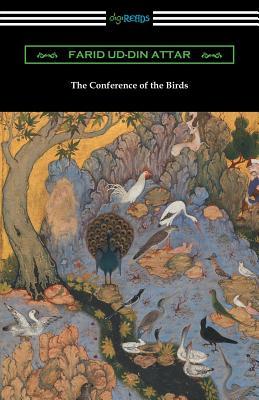Farid ud-Din Attar was a Persian poet, druggist, and social theorist of Sufism, who wrote much of his poetry while treating hundreds of patients a day with his herbal remedies. As a young man he made a pilgrimage to Mecca, and sought wisdom during his travels in Egypt, Damascus, and India. His masterpiece, "The Conference of the Birds", has survived centuries because of its captivating poetic style and its symbolic exploration on the true nature of God. This 4500-line poem follows the birds of the world, each of which hold special significance, as they seek out the Simurgh, a mythical Persian bird much like the phoenix, in hopes that he might be their king. The birds must cross seven valleys on their quest, each of which represents various trials that the individual must pass through to realize the true nature of God. Within the overlying allegory, Attar captivates readers with short, charming stories in beautiful and clever language. This edition is printed on premium acid-free paper and follows the translation of Edward Fitzgerald.

Farid ud-Din Attar was a Persian poet, druggist, and social theorist of Sufism, who wrote much of his poetry while treating hundreds of patients a day with his herbal remedies. As a young man he made a pilgrimage to Mecca, and sought wisdom during his travels in Egypt, Damascus, and India. His masterpiece, "The Conference of the Birds", has survived centuries because of its captivating poetic style and its symbolic exploration on the true nature of God. This 4500-line poem follows the birds of the world, each of which hold special significance, as they seek out the Simurgh, a mythical Persian bird much like the phoenix, in hopes that he might be their king. The birds must cross seven valleys on their quest, each of which represents various trials that the individual must pass through to realize the true nature of God. Within the overlying allegory, Attar captivates readers with short, charming stories in beautiful and clever language. This edition is printed on premium acid-free paper and follows the translation of Edward Fitzgerald.